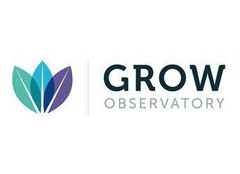Kategorie: Aktuelles
GROW Observatory
An EU-wide 'citizen science' project for growers, gardeners, small and family farmers, and space scientists
The European Commission through Horizon 2020 is supporting the development of an ecosystem of Citizen Observatories. The vision is to create a movement around environmental observations to inform and empower citizens to participate in environmental decision making, leading towards more inclusive, sustainable and smart economic development. Citizen science has a long history, and increasing availability of smartphones and low-cost sensing technologies has opened up new possibilities for collaborative data collection and sense making, which ultimately contribute to monitor the status of the environment, support land users in making decisions, and develop and implement environmental policies.
The GROW Observatory (GROW) will create a sustainable citizen platform and community to generate, share and utilise information on land, soil and water resource at a resolution hitherto not previously considered. The vision is to underpin smart and sustainable custodianship of land and soil, whilst meeting the demands of food production, and to answer a long-standing challenge for space science, namely the validation of soil moisture detection from satellites. This will ultimately lead to increasing small-scale food production and preserving the soil quality for future generations, whilst improving forecasting of extreme climate events, such as heat waves and floods. To achieve this GROW will combine low cost sensing technology combined with citizens' own devices, a simple soil test, innovative data handling and an online education platform to mobilise large numbers of citizens across Europe.
GROW is a highly innovative project designed to engage primarily individual growers and small-scale farmers across Europe, and to enable them to develop new wisdom and innovative practices through the collective power of shared and open data and knowledge. This Europe-wide network of citizen scientists, will then work alongside policymakers and scientists. Citizens contributing data will gain access to the first single-source comprehensive crop and watering advice service for individual and small-scale growers incorporating scientific and crowdsourced information. Moreover, they will
develop “missions” (coordinated sampling operations) around local needs and issues, to underpin smarter decision-making and implementation of policy objectives. GROW will actively identify and enable new and credible social and business innovation processes, creating potential new services, applications and markets. The outcome will be a central hub of open knowledge and data created and maintained by growers that will be of value to the citizens themselves as well as specialist communities in science, policy and industry. The GROW partnership will connect and scale to globally dispersed communities linked through digital and social platforms, and a wide range of additional citizen associations and NGOs in sustainable agriculture, gardening, food democracy and land management.
Led by the University of Dundee and including partners across Europe, the GROW Observatory has received funding of €5million over the next three years through the European Commission's Horizon 2020 programme. The project started on 1st November 2016, and aims to engage growers and citizen scientists to help co-create the experiments during the 2017 growing season.
GROW will offer
- Simple, fun experiments to do with friends, family or your community.
- Low cost but high power consumer sensing technology, a simple to use soil testing kit, and easy applications, to lower barriers to entry.
- A Massive Open Online Course (MOOC) to enable scaling of rigorous citizen science.
- Engagement underpinned by storytelling and community champions.
For more information and for joining the project, please visit: growobservatory.org
Special call for the activities leaded by FAO:
- We are looking for farmers willing to join Mission 2 on the validation of the soil testing kit. The soil parameters under consideration are N, P, K, pH, soil texture and calcium carbonate.
- FAO is leading the Observatory Policy Interface, which aims to bring the results of the project at the attention of policy makers and promote participatory governance in Europe. At this regard, we are looking for informing and to some extent involving policy makers (also through policy networks) in the project activities.
- Links:
- growobservatory.org

